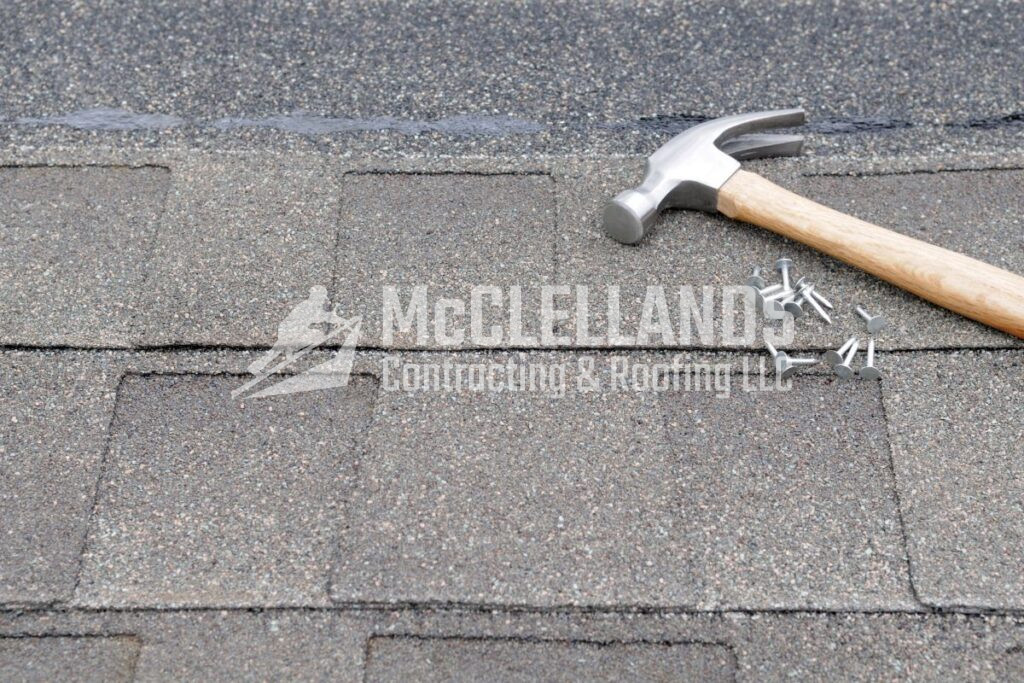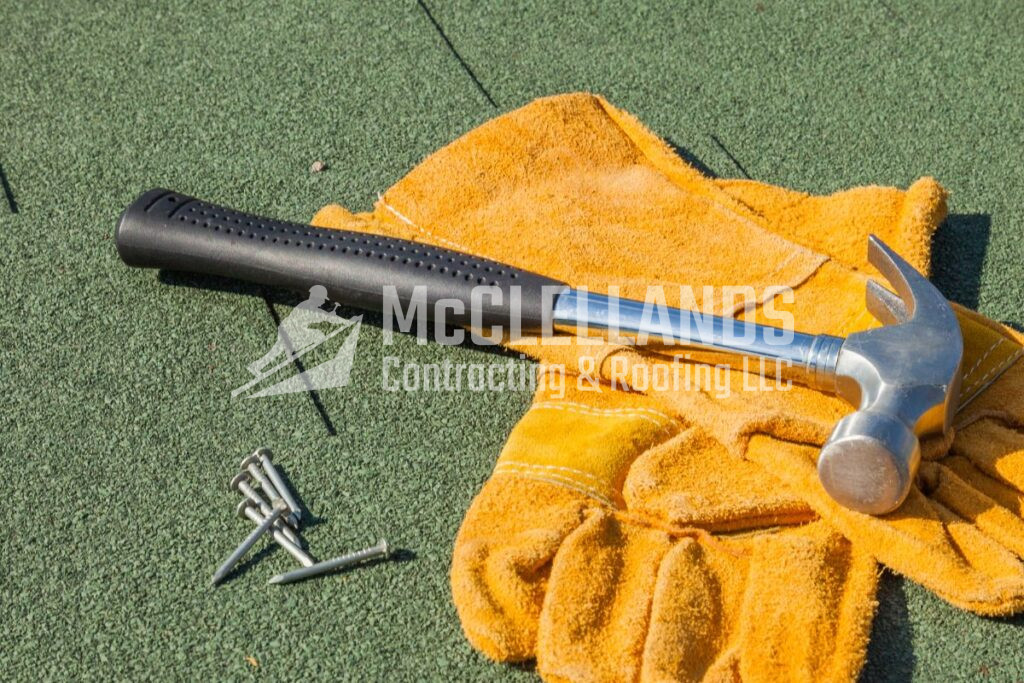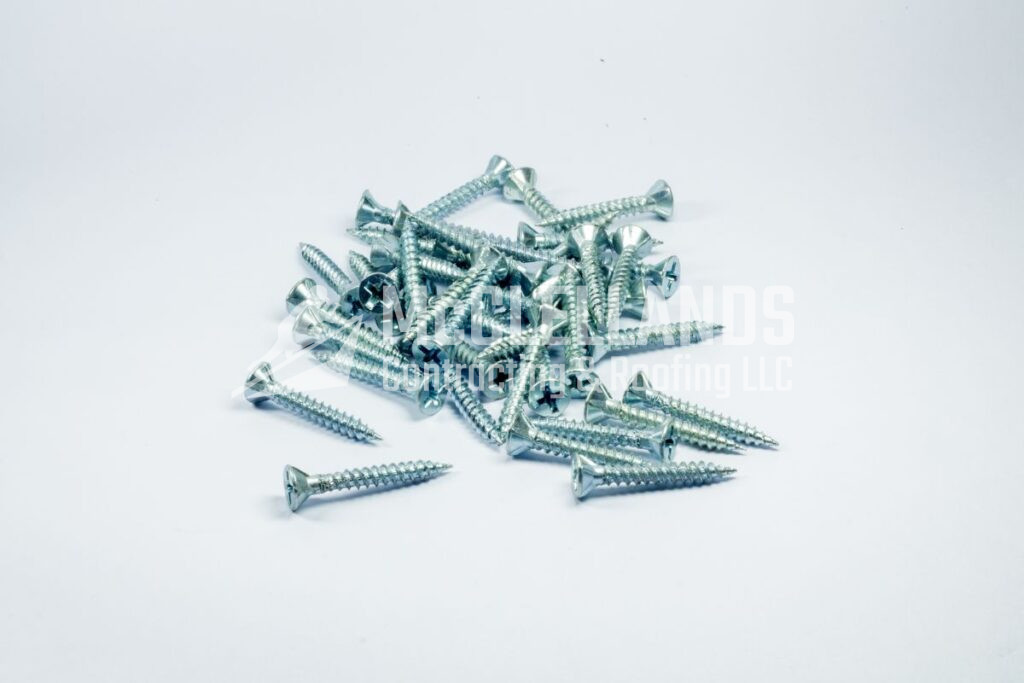Even the tiniest parts of your roofing system play a huge part in its performance. Roof nails are the perfect example. Roofing nails are used to secure shingles to the roof deck, keeping them in place. Choosing the right type of nails is crucial for a long-lasting, weatherproof roof.
At McClellands Contracting and Roofing, we aim to provide homeowners with complete knowledge about different parts of their roofs. In this blog post, we are going to cover all you should know about roofing nails for shingles. After reading this complete guide, you will understand what materials are available and how to choose the right roofing nail for your roof.
If you are looking for reliable roofing services in Pittsburgh, PA, and the surrounding areas, contact us today!
What Is The Role Of A Roofing Nail?

Roofing nails play a crucial role in keeping your home safe and dry. These small fasteners secure shingles to your roof, creating a strong barrier against the elements. Roof nails for shingles do more than just hold things in place. They form a tight seal that stops water from sneaking into your home. This protection is important for preventing damage to your roof's structure and your house's interior.
In windy areas, the strength of your roofing nails becomes even more important. Nails for roofing shingles with special features like ring shanks offer extra grip, helping your roof stand strong during storms. This added security can save you from costly repairs down the road.
When choosing roof nails, consider your local climate and building codes. The correct type and size of roofing nail ensures your roof meets safety standards and can handle your area's weather.
Also Read: How Often To Replace Your Roof?
What Are Different Types Of Nails For Roofing Shingles?
Now that you understand the role of roofing nails, we will go over the different types commonly used for asphalt shingles. Each of these types has their own functionality and design.
#1 Smooth Shank Nails

These roofing nails have a simple design. They look like straight, slender metal pins with a flat head. The shaft is smooth, without any special features. When you hold one, you'll notice it's plain and uniform from top to bottom.
These are common roof nails for shingles, but they might not grip as well as other types. If you're looking for basic nails for roofing shingles, these are a reliable option. However, in areas with strong winds, you might want to consider other nails that offer a stronger hold.
#2 Ring Shank Nails

The shaft of this roofing nail type has circular rings or grooves along it, like tiny ridges wrapping around the nail. When you run your finger along it, you'll feel these bumps. These rings give the nail extra gripping power.
If you live in a place with high winds, these roof nails are a great choice. They resist pull-out forces, which helps keep your roofing shingles secure.
#3 Barbed Nails
These roofing nails have a distinct appearance. Along the shaft, you'll see small, angled cuts that look like tiny barbs or fish hooks. If you run your finger along the nail, you might feel these little projections.
These barbs are designed to dig into the wood as you hammer the nail in. Like ring shank nails, these roofing nails provide excellent holding power.
When you're choosing nails for roofing shingles, barbed nails are a good option if you want your roof to stay put in tough conditions. They offer a strong grip to keep your roofing shingles secure.
What Are The Different Types Of Roofing Nail Materials?
You will find the common material options listed below when you look for roofing nails. To choose the right one, it’s a good idea to understand the pros and cons of each.
| Roof Nail Material | Pros | Cons | Suitable For |
|---|---|---|---|
| Galvanized Steel | These nails are coated with zinc to prevent rust and corrosion. Galvanized steel roofing nails are affordable and offer great value for your investment. | These nails can rust over time. While affordable, these nails are not as strong as stainless steel, | Asphalt shingle roofs, low-slope roofs, general roofing applications. |
| Stainless Steel | These roofing nails provide superior corrosion resistance compared to galvanized steel nails. Stainless steel nails are ideal for use in coastal areas or near saltwater. Apart from shingles, they are also a good choice for metal roofs. | More expensive than galvanized steel nails, it may not be readily available in all areas. | Asphalt shingles, metal roofs, coastal areas, high-wind areas, roofs with a long lifespan. |
| Aluminum | Aluminum nails are lightweight and corrosion-resistant, making them a popular option for asphalt and wood shingle roofs. | Not as strong as steel nails, which may not be suitable for high-wind areas. | Asphalt shingle roofs, wood shingle roofs, low-slope roofs. |
| Copper | Copper roofing nails are rust-resistant and are often required by building codes for roofs. They are also stronger than steel and last longer than galvanized fasteners. | Most expensive type of roofing nails. | High-end metal roofs, copper roofs, asphalt shingles. roofs in areas with extreme weather conditions. |
How To Choose The Right Roofing Nails for Your Asphalt Shingle Roof
There are some important considerations to keep in mind when choosing the right nails for roofing shingles.
- Shingle Type: The type of shingle you are using will influence your nail selection. For example, asphalt shingles generally require shorter nails than wood or metal shingles.
- Roof Pitch: The slope of your roof will also affect the type and length of nails you need. Steeper roofs require longer nails to provide adequate holding power.
- Weather Conditions: If you live in an area with strong winds or heavy rain, you must choose strong and corrosion-resistant nails.
- Building Codes: Always follow local building codes and regulations when selecting roofing nails. These codes will specify the minimum nail length and gauge required for your roof.
What Is The Right Nail Size For Roof Shingles?
Choosing the right nail size for roofing shingles is essential. For most asphalt shingles, use nails that are 1¼ to 2 inches long.
The nails should be at least 12 gauge thick, with heads about ⅜ inch wide. These nails need to go through the shingle and at least ¾ inch into the roof deck. Using the correct nails helps make sure your roof is strong and lasts a long time.
How To Nail Shingles On A Roof
Installing roof shingles correctly is important. The roofing nails must go through all roofing layers and into the material underneath. Check the manufacturer's guidelines for where to put nails. Use the right kind of nails for your roof type and local climate and hammer them in straight and flat. Don't nail too high on the shingle or at an angle, as this can cause problems like leaks or shingles blowing off in the wind. Most importantly, remember to take your time.
Hire The Best Rated Roofers For Shingle Installation In Pittsburgh, PA
If you are looking for durable and sturdy shingle installation in Pittsburgh, PA, we are here to assist you. At McClellands Contracting and Roofing, we aim to serve homeowners and commercial building owners with high-quality roofing services.
To get a quick custom quote for your project, click here! For more information, feel free to call us today at (412) 353-5660.




